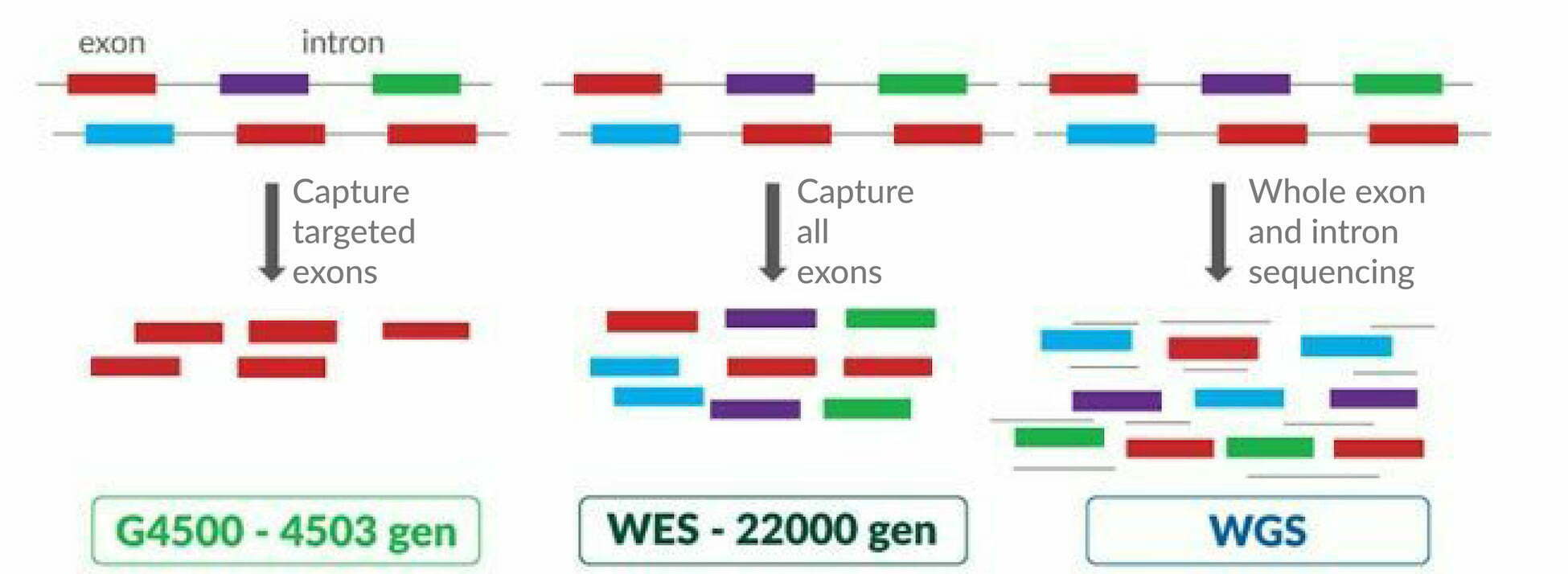No products in the cart.

Foetus/children/patient has non-specific clinical symptoms, especially for the following diseases:
• A complex phenotype with multiple differential diagnoses.
• A genetically heterogeneous disorder.
• A suspected genetic disorder but gene specific testing is not available.
• Premarital genetic disease screening, and newborn screening when there is a family history of genetic disease.
| Disease | N | Diagnosis rate | Scientific Research |
|---|---|---|---|
| Severe congenital developmental disorder in children | 1133 | 40% | Wright et. al. 2018 |
| Children with neuromuscular disease | 56 | 75 (gene panel) – 79% (WES) | Schofield et. al. 2017 |
| Children with complex neurological disorders with genetic predisposition | 150 | 29.3% vs 7.3% had made a clinical diagnosis | Vissers et. al. 2017 |
| Children with suspected single-gene disorder | 80 | 5 7.5% vs 13.75% had made a clinical diagnosis | Stark et al. 2016 |
| Paediatric patients/patients with complicated clinical manifestations, multiple lesions | 145 | 54% (WES or trio WES) | Dillion et. al. 2018 |
Sensitivity and specificity were determined based on Oncospan reference standards (Horizon Discovery, UK). This is the database containing the most recognized mutations in the world currently, the number of mutations has a frequency of up to 25%, distributed over 143 different genes.
The sensitivity was 99.5% (248 mutations detected out of 249 mutations) and specificity was 99.9%
Copyright © 2020 GENE SOLUTIONS
Legal Representative: Nguyễn Hữu Nguyên
Enterprise No. 0314215140 – HCMC D.P.I issued on January 23, 2017
GET MEDICAL CONSULTATION FROM DOCTORS
Tư vấn di truyền